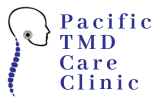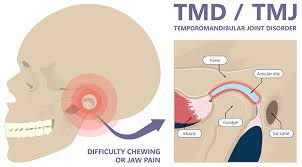TMD and TMJ are often used interchangeably, but they refer to different aspects of the same condition.
What is TMD?
Temporomandibular Joint Disorder (TMD) is a broad term encompassing a range of conditions that affect the jaw joint and the muscles surrounding it. Symptoms can include jaw pain, clicking or popping sounds, difficulty opening your mouth, and headaches.
What is TMJ?
TMJ stands for Temporomandibular Joint. It’s the joint that connects your lower jaw to your skull. When this joint is affected by TMD, it can cause pain and discomfort.
TMD vs. TMJ: Key Differences
- TMD is a broader term that encompasses various conditions affecting the jaw joint and surrounding muscles.
- TMJ is the specific joint involved in TMD.
If you’re experiencing symptoms of TMD, it’s important to consult with a healthcare professional for an accurate diagnosis and appropriate treatment.
Pacific TMD Clinic specializes in treating TMD and TMJ.
Is TMD a serious problem?
While TMD can be quite uncomfortable and affect daily activities, it’s generally not a serious health problem. However, if left untreated, it can lead to more severe complications, such as chronic pain, difficulty eating, and even hearing problems.
How do I fix my TMD?
The best treatment for TMD depends on the underlying cause and severity of your symptoms. Common treatment options include:
- Medications: Over-the-counter pain relievers or prescription medications can help manage pain and inflammation.
- Physical therapy: Exercises and stretches can help improve jaw function and reduce muscle tension.
- Splint therapy: A mouthguard or splint can help realign the jaw and reduce stress on the TMJ.
- Lifestyle changes: Avoiding clenching or grinding your teeth, managing stress, and maintaining a healthy diet can also help.
Is TMJ or TMD curable?
In many cases, TMD can be managed effectively with the right treatment. However, there’s no guaranteed cure.
If you’re experiencing symptoms of TMD, it’s important to consult with a healthcare professional for a proper diagnosis and treatment plan.
Our experienced team can provide effective solutions to help you find relief from your symptoms.


